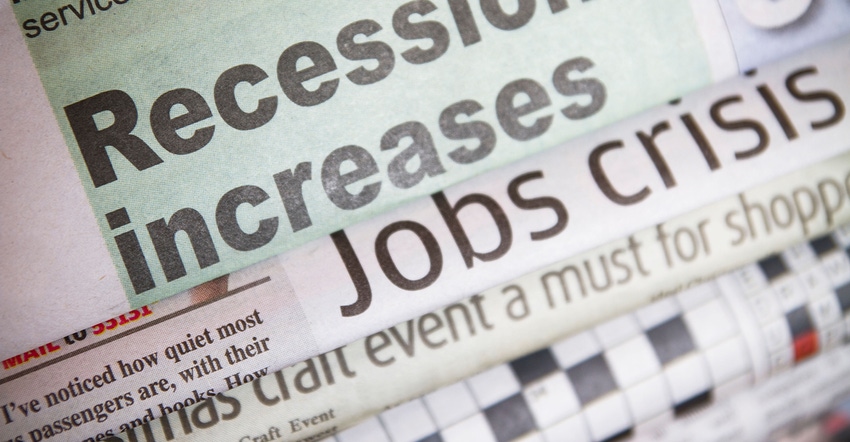A Recession is Coming in 2023: Stifel's Michael E. Hoffman Talks Inflation
As banks across the globe hike interest rates, the world is preparing for an impending global recession anticipated in mid 2023. The trajectory of central banks raising interest rates along with fiscal policy "may not be sufficient" to push global inflation to levels before the pandemic, according to a recent report from The World Bank.

As banks across the globe hike interest rates, the world is preparing for an impending global recession anticipated in mid 2023.
The trajectory of central banks raising interest rates along with fiscal policy "may not be sufficient" to push global inflation to levels before the pandemic, according to a recent report from The World Bank.
"Central banks around the world have been raising interest rates this year with a degree of synchronicity not seen over the past five decades—a trend that is likely to continue well into next year," the international financial institution indicated.
At the 2022 NWRA Executive Leadership Roundtable, Michael E. Hoffman, Stifel managing director, discussed the U.S. fiscal policy measures and other economic indicators that signal a global recession on the horizon.
"You cannot spend your way out of as a government problem, and I'm not just somebody making a red or blue call," he stated. "You just can't you overstimulate an economy. When you do that, you throw too much money out at them and it gets consumed. It just overstimulates, and it helps create this inflationary environment. So, now you have inflation and you have an affordability issue. With those things combined, it crushes the next item which is the consumer. "
An additional federal interest rate increase of 75 basis points would set the wheels in motion for recession, all other factors aside. The boost would cause the housing market to spiral, dropping single-family housing starts below one million homes.
Mortgage rate increases along with rising construction materials costs have caused U.S. homebuilding to drop to its lowest levels in more than two years, according to the U.S. Census Bureau. There were 1.439 million single-home family unit starts in September, a contraction that was greater than anticipated.
Along with the slowing housing market, the U.S. is "about to test the limits" of consumer spending "fairly aggressively," Hoffman indicated.
Consumer savings spiked at 9 percent of a U.S. worker's total income during the pandemic, driven by stimulus payments and other fiscal policy. The current rate is hovering in the mid to high 3 percent range, which is well below average.
"When you buy a house, you buy lots of other things," he explained. "Even if you're in house and buying a new house, that house looks different for you. It's got a different shape. You buy new things - all of that consumerism goes away. So, that has consequences, which means inventory has ended up chalked and you start to see that trickling through and slowing down the consumption cycle."
JPMorgan Chase CEO Jamie Dimon has been extensively outspoken about the headwinds and other indicators warning of a global recession, previously stating that the individual savings rates at accounting with Chase banks were $3,000 to $4,000 above normal.
"That's the stimulus that worked through that three or four grand yet and that was a head fake," Hoffman commented. "You were all being faked into 'this is great because they had a cushion they could plow into'. I'm here to tell you to plow through that cushion. We're at a 3.9 percent savings rate right now, and potentially you're going to find ourselves in a situation where that consumer is now looking at the paycheck."
About the Author(s)
You May Also Like




